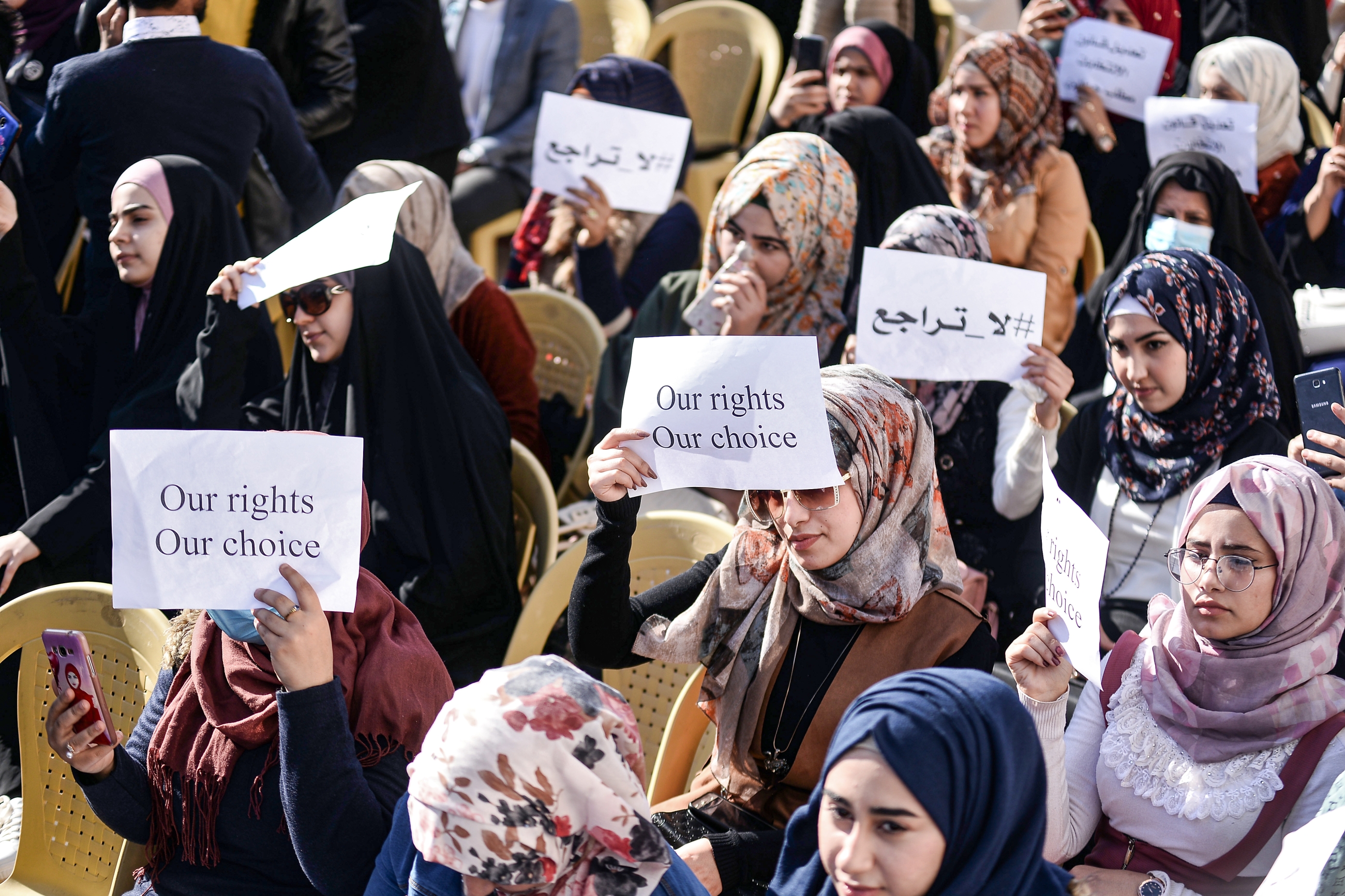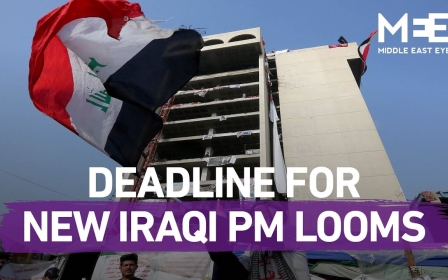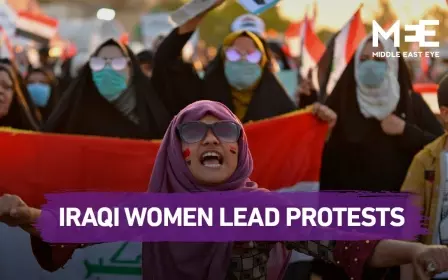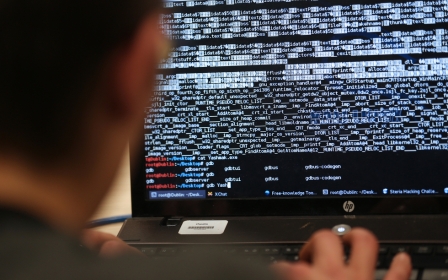Iraqis protest as deadline for appointing new prime minister looms

Thousands of people have again taken to the streets in Iraq as a deadline looms for the appointment of a new prime minister.
Street protests were instrumental in forcing the resignation, approved by parliament at the start of this month, of Prime Minister Adel Abdul Mahdi, but activists have expressed concern about the influence of Iran in picking a new premier.
Sunday marks the latest deadline, which has already twice been pushed back by President Barham Saleh, for parliament to choose a new prime minister. Mahdi is continuing as prime minister until his successor is approved.
However, parliament has been deadlocked as rival blocs vie to put their candidates in place.
The pro-Iran Bina coalition, which claims to be the largest bloc in parliament, is backing Qusay al-Suhail, the current education minister, as its candidate.
New MEE newsletter: Jerusalem Dispatch
Sign up to get the latest insights and analysis on Israel-Palestine, alongside Turkey Unpacked and other MEE newsletters
Suhail is also seen by many as Iran's preferred candidate, and he has been roundly rejected by demonstrators who see Iran as too influential in Iraq.
"This is exactly what we oppose - Iranian control over our country," said 24-year-old student Houeida, speaking to AFP in Baghdad's Tahrir Square.
At least 460 people have been killed since 1 October in Iraq, as protesters have taken to the streets to demand a change to a political system seen as institutionally corrupt and unable to provide jobs or services.
"Hundreds of martyrs have fallen and they are still not listening to our claims," said 21-year-old student Mouataz, in Baghdad's Tahrir Square.
"We want a prime minister with integrity, but they bring back a corrupt man in their image who they will allow to continue robbing us."
Many of the protesters also chanted against Qassem Suleimani, the powerful head of Iran's elite Al-Quds Force.
Suleimani has reportedly been in touch with Iraqi government officials numerous times since early October and is seen by protesters as manipulating events behind the scenes.
Influential Shia cleric Muqtada al-Sadr said in a tweet on Saturday that parliament needed to "respect the marjaiyah, and respect the will of Iraqi people and protesters," referring to Iraq's clerical establishment, who have backed the protesters.
"I call on the Bina coalition and their candidate Qusay al-Suhail to respect the orders of the marjaiyah, respect the will of the people, and save your dignity, as that will be for good to you and us," he said.
The tweet was later apparently deleted.
'Bloody chaos'
The post of prime minister in Iraq's post-2003 political system is by convention held by a Shia.
In a Twitter plea to Saleh, one opposition Sunni lawmaker on Sunday called for the president to "violate the constitution rather than plunge the country into bloody chaos by choosing a figure people have already rejected".
Some in parliament, the most fragmented in Iraq's history, argue that Saleh should use Article 81 of the Constitution, which authorises the president himself to step in as prime minister if there is no agreement among lawmakers on a candidate.
In a sign of the protesters' unprecedented influence, top Shia cleric Grand Ayatollah Ali Sistani, who is said to have made and unmade every premier in the post-Saddam era, has been notably absent from the manoeuvrings this time around.
The protest movement has been hit by intimidation, including assassinations perpetrated by militias, according to the UN.
Overnight, demonstrators in Diwaniyah and Basra had declared a "general strike".
They burnt tyres to block roads linking southern cities to Baghdad, an AFP correspondent said.
The road to Umm Qasr port, near Basra and vital for imports, was among those blocked.
In Karbala and Najaf, two Shia holy cities, striking students closed schools and gathered in their thousands, AFP correspondents said.
In Nasiriyah, protesters blocked bridges and several roads while all public buildings remained closed.
Middle East Eye delivers independent and unrivalled coverage and analysis of the Middle East, North Africa and beyond. To learn more about republishing this content and the associated fees, please fill out this form. More about MEE can be found here.




